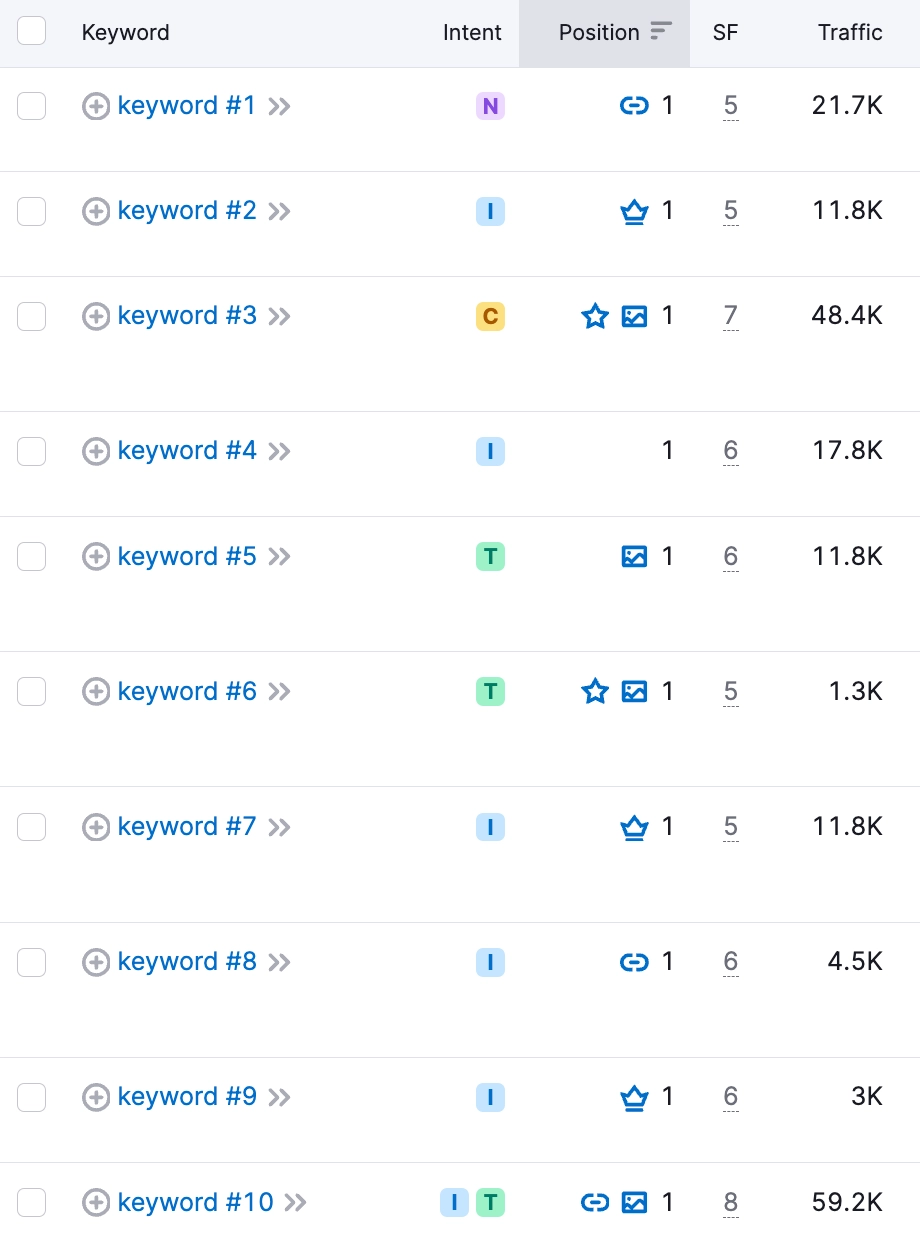Structured data refers to the use of standardized formats to provide information about a webpage and classify its content. This data helps search engines understand the context of the information on the webpage more accurately, which can improve the visibility and appearance of the page in search engine results.
In this article, you will learn about what structured data testing is, how it is used, why it is important, etc. You will also discover the top six structured data testing tools that you can use to verify your code.
What is structured data testing?
Structured data testing involves using a data testing tool to monitor the health of your page. The tool can help identify and resolve issues related to structured data. In other words, testing tools validate structured data and snippets.
Structured data testing tools can test structured data during deployment. These tools provide information about the page’s data visible to search engines.
These tools can also detect the permalink configuration and display information based on the structure. Some of the tools can detect taxonomies and custom post types by examining the code. Others can also validate metadata formats supported by Google, Bing, Yahoo Search, and other search engines.
How Does Structured Data Help With SEO?
- Testing structured data is important for search engine optimization (SEO) because optimized structured data can help increase a website’s visibility on search engine results pages.
- One study found that websites with structured data code rank an average of four positions higher.
- Structured data allows you to guide search engines in presenting additional information apart from the page’s title and description. Structured data code can provide search engines with information about the site’s average rating, pricing information, product features, and much more.
- This information can increase the site’s click-through rate (CTR) and reduce its bounce rate, both of which are important ranking factors in search engines.
- At the core of SEO is making your site easily understandable to search engines, which can be achieved through structured data.
6 Useful Structured Data Testing Tools:
1. Google Structured Data Testing Tool
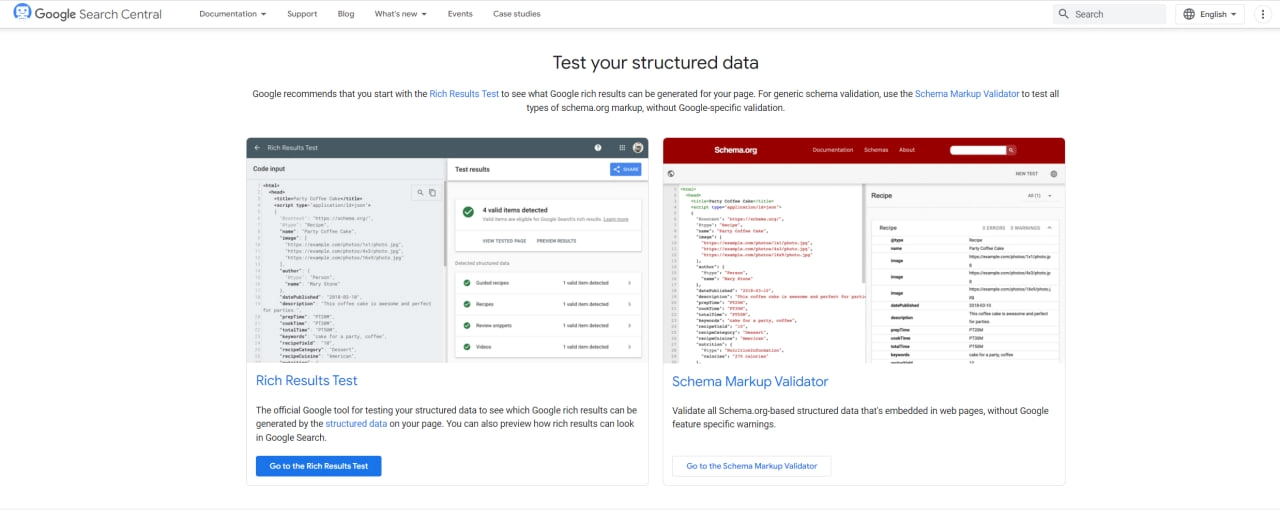
Best for validating structured data formats JSON-LD, Microdata, and RDFa.
The Google Structured Data Testing Tool is a simple and hassle-free tool for testing data. You can paste your website URL or code snippet, and the tool will check the structured data code and report any errors. It can help you validate whether the structured data code is in the correct format or not.
You can also check different structured data fields such as organization name, type, URL, and other information. Google recommends that you check your site with this tool during your site’s development. It is essential to use the tool before deploying your site.
2. Chrome Extension: Structured Data Testing Tool
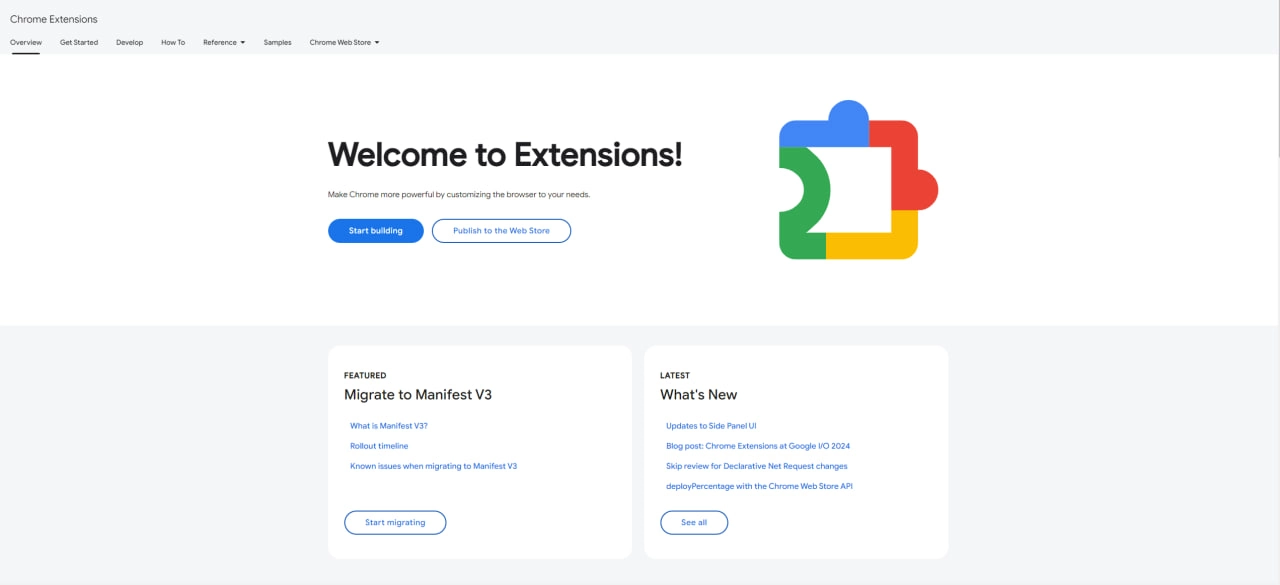
Best for validating structured data formats JSON-LD, Microdata, and RDFa.
The Chrome extension of the Structured Data Testing Tool is another excellent tool for validating your site. You should use this tool if you are using the Chrome web browser.
The extension is not a standalone application. Instead, the application uses the Google Structured Data Testing Tool to validate markup. It checks all the formats supported by the Google validation tool.
You can also view structured data in the Google Structured Data Tool. Warnings and errors will be displayed respectively in orange and red.
The tool can also access websites that are in a development or staging environment. The extension will validate rich snippets and structured data on a website. This tool allows you to check code on different media.
3. Bing Markup Validator

Best for validating Schema, RDFa, Microdata, JSON-LD, and OpenGraph.
The Bing Markup Validator is part of the Bing Webmaster tools. You can access the tool by clicking on Diagnostic & Tools on the search page. The tool allows you to validate different types of structured data, including RDFa, JSON-LD, OpenGraph, and microformats.
You can use the validation tool for free. However, you need to sign in and add your site to validate the structured data code. A drawback of the tool is that it does not allow you to validate HTML structured data.
4. Google Email Markup Tester
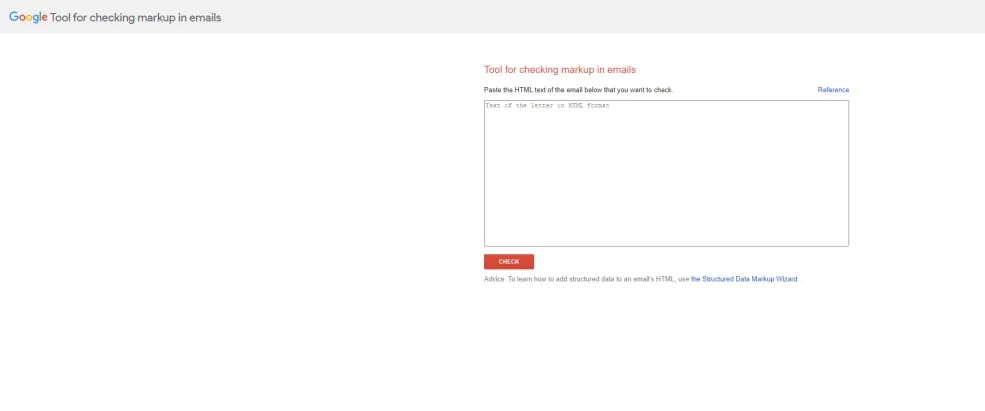
Best for validating structured data markup in HTML emails.
The Google Email Markup Tester will check whether the structured data extracted from emails meet standard specifications.
You can use this tool for free. To check structured data, you need to paste the markup code into the text area and click on Validate. The tool will display the extracted structured data as well as the properties of each entity. The tool will also display a specific error message if the input is not valid.
5. JSON-LD Playground
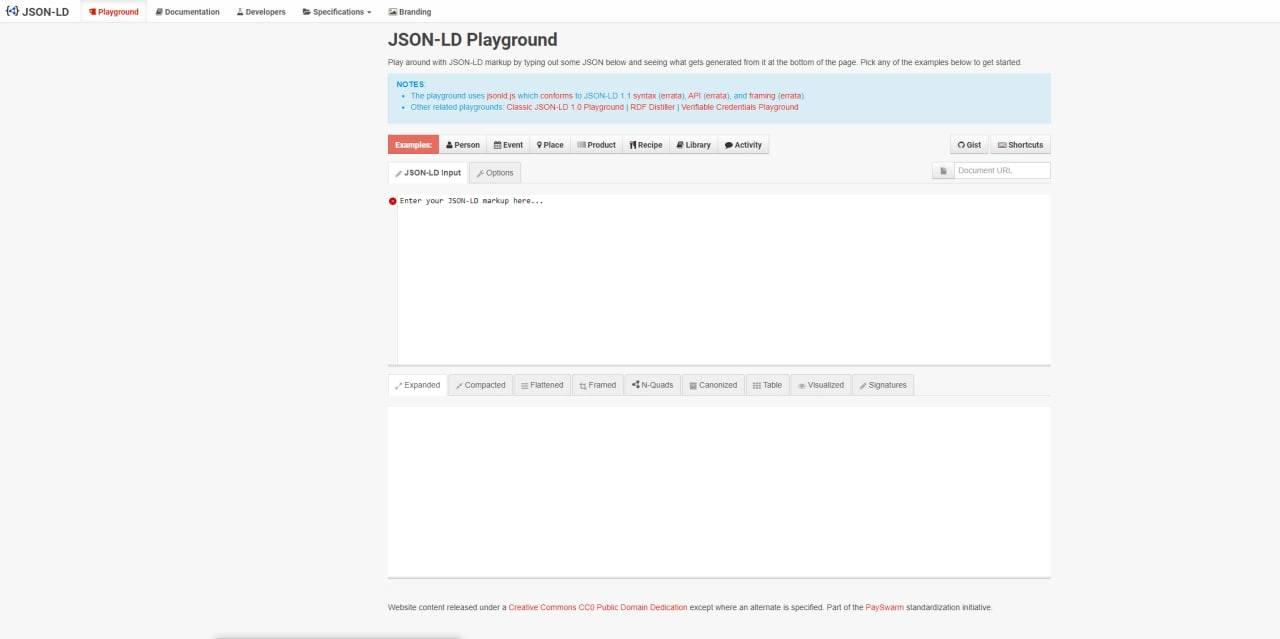
Best for validating JSON-LD structured data format.
The JSON-LD Playground is the best tool for validating JSON-LD structured data format. The tool allows you to perform a comprehensive analysis of the code.
Simply enter the markup code starting with <script type=”application/ld+json”> or the URL of the remote document and the site will display a detailed report. The tool helps website owners check whether the syntax complies with the requirement.
6. Microdata Tool
Best for validating HTML5 microdata.
The Microdata Tool can validate HTML5 microdata structured data. The tool is a jQuery script that you can include on your website. It is a useful browser validation tool that can be used without an internet connection or web server.
Conclusion
Here, we have reviewed the best-structured data testing tools available on the market. The purpose of this article was to introduce you to structured data testing tools. The listed tools are suitable for both individual programmers and large programming companies.
To maximize the benefits of these tools and ensure your website’s SEO is fully optimized, it is highly recommended to consult with an SEO expert. An SEO expert can provide tailored strategies and insights, helping you effectively implement structured data, improve search engine rankings, and ultimately drive more traffic to your site.




